
Ashley Yeager
Associate Editor, Science News
Ashley Yeager is the associate news editor at Science News. She is fascinated by the stars and the stuff between them — so much so that she once worked at one of the world’s largest telescopes and more recently wrote a book about astronomer Vera Rubin. Ashley has a bachelor’s degree in journalism from the University of Tennessee, Knoxville, and a master’s degree in science writing from the Massachusetts Institute of Technology (MIT). She enjoys hiking with her dogs, swimming and reading.

All Stories by Ashley Yeager
-
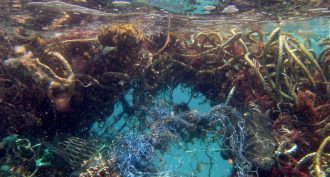 Environment
EnvironmentPlastic trash travels up to Arctic waters
Bags, fishing rope and other tiny bits of plastic are now polluting Arctic waters, posing threats to area wildlife.
-
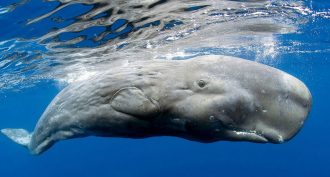 Animals
AnimalsSperm whales’ clicks suggest the animals have culture
Sperm whales appear to learn the sounds they use to socialize. That suggests they have some form of culture.
-
 Health & Medicine
Health & MedicineSurvey finds U.S. schools start ‘too early’
The school bell dings too early for U.S. tweens and teens, a survey finds. Most kids start class well before the recommended 8:30 a.m.
-
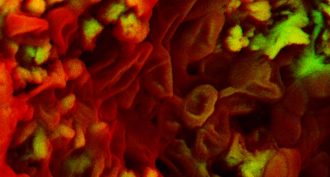 Animals
AnimalsMore dinosaur bones yield traces of blood, soft tissue
More dinosaur bones are found to contain residues of blood and soft tissue. The discovery could help point to when dinosaurs turned into warm-blooded creatures.
-
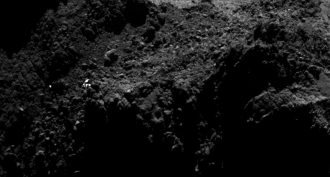 Space
SpaceNews Brief: Surprise — comet lander awoke!
Scientists think the lander’s instruments may have lots to share about comet 67P/Churyumov-Gerasimenko in coming days to weeks.
-
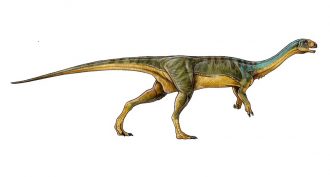 Fossils
Fossils‘Frankenstein’ dino showed a mashup of traits
New species unearthed in Chile is “an anatomical Frankenstein,” declares one of its discoverers.
-
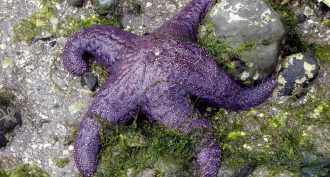 Microbes
MicrobesVirus blamed in starfish die-off
A virus may explains the deaths of millions of starfish along the Pacific Coast of North America. The deaths affect 20 species. Some of the stricken animals appear to melt into puddles of slime.
-
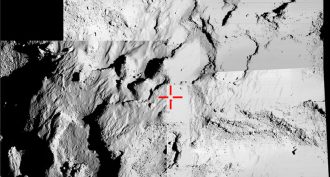 Planets
PlanetsComet probe may shed light on Earth’s past
Scientists spent more than two decades setting up Philae’s months-long investigation of a comet. What they hope to learn could shed light on Earth’s childhood — and the source of its water. But that’s if problems with Philae’s landing don’t cut the robot’s life span.
-
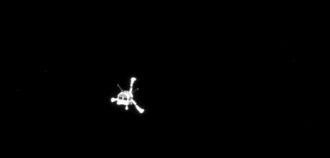 Planets
PlanetsPicture This: Falling to a comet
After a more than decade-long ride, a robotic lander has left its spacecraft and floated down onto the surface of a comet. From there it should begin scouting for hints at how our solar system formed.
-
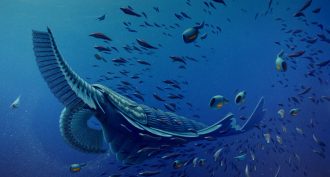 Fossils
FossilsLobster’s ancient ‘cousin’ was gentle giant
Some 500 million years ago, this top predator would have likely netted its meals with long bristly limbs.
-
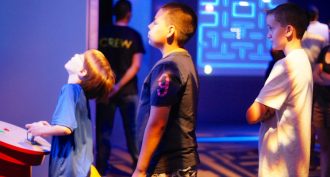 Brain
BrainVideo games can help some people read
People with dyslexia seem to get a boost from screen time.
-
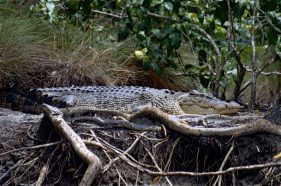 Animals
AnimalsWatch out for tree-climbing crocs
What’s that up in the tree? If you live in the right part of the world, it could be a hungry croc.